Top 20 Cybersecurity Bootcamp Programs
Cybersecurity boot camps are a way to fast track a career into the exciting world of IT security. There is a wide array of positions that can be attained after completing a cybersecurity boot camp. This type of training is frequently being used as a fast and affordable way to fill the growing need for cybersecurity professionals. Cybersecurity continues to expand as a profession and there are no signs of it slowing down in the future. Here is a look at the top 20 cybersecurity boot camps, along with a collection of pertinent information about these programs.
What is a Cybersecurity Bootcamp?
A cybersecurity boot camp is an intensive program that teaches cybersecurity essentials. The program is designed to equip participants with the necessary skills and knowledge to begin a career in IT security. There is such an immense need for workers in this industry that a boot camp experience can be a sufficient credential to immediately enter the workforce. Cybersecurity boot camps are continually being updated with the latest industry trends so that participants are learning state-of-the-art concepts. The boot camp serves the function of providing a fast track into an industry that is in constant need of new workers.
It should also be noted that most cybersecurity boot camps do not start off with elementary instruction. Attendees are typically expected to begin with a pre-existing foundation of knowledge that will help navigate through the program. A number of cybersecurity boot camps are preceded by an introductory course that can span anywhere from a week to a month. This introductory course can serve as a base for which to begin the boot camp. That will make new concepts simpler to understand. A boot camp is much like a college degree program crammed into a shorter amount of time. Some boot camps provide participants with mentors who offer assistance throughout the program.
Are Cybersecurity Bootcamps worth it?
A cybersecurity boot camp comes with a cost. It is an investment that can exceed the $10,000 mark. However, it is a form of job training that is intended to result in employment in the cybersecurity industry. Because of the complexities involved with cybersecurity, entry-level workers are expected to have some type of training. But because of the shortage of cybersecurity professionals, there is no required degree to assume a position. There only needs to be a working knowledge of cybersecurity and its functions. A boot camp packs a wealth of knowledge into a short time frame that generally lasts anywhere from 24 to 36 weeks.
The value of a cybersecurity boot camp is not so much in receiving a certification, but the skills and knowledge that are acquired during the program. These are the skills that are necessary for individuals to find success as a cybersecurity professional. The return on investment comes in the form of employment. There is no guarantee of employment following a boot camp, although it significantly heightens the possibility. Also, most cybersecurity boot camps have job placement and Career Services programs that help facilitate employment. Prominent boot camps also have working relationships with businesses and organizations, which also aids in the process.
Cybersecurity boot camps allow individuals the opportunity to put together a portfolio, which can be used in job interviews. But participants get out what they put in and the more effort and study that goes into the boot camp, the greater the value. That is why is important to allot the required amount of weekly hours suggested to complete the work. The reality is there is a lot of information packed into a cybersecurity boot camp. Therefore, participants should be able to devote a few months of intensive study to this endeavor.
Cybersecurity boot camps are cheaper than the cost of a bachelor’s degree and even an associate degree. And cybersecurity jobs are higher paying than many other jobs provided to recent college graduates. Cybersecurity analysts earn an average salary of $75,798 per year, according to payscale.com. The investment in a cybersecurity boot camp is very low compared to entry-level pay in this profession, which also has significant room for advancement. In the end, an investment of one’s time and dedication make cybersecurity boot camps well worth the money.
What is the structure of a cybersecurity Bootcamp?
Most cybersecurity boot camps are offered online. While there are different modules, the general makeup remains very similar. Many boot camps are 25-30% lectures given by experienced cybersecurity instructors which include demos along with an in-class assignment. This allows students to learn as they work on different concepts. Each concept builds on the previous one and that paves the way for more advanced programming. Students are able to do an abundance of work in a virtual environment. Many boot camps include detailed instruction on the following topics:
- Ethical hacking
- System administration
- Computer programming
- Risk assessment
- Vulnerability detection
- Advanced coding
- Pen testing
- Incident response
- Scripting
Most boot camps conclude with some kind of large-scale final project. This serves as excellent preparation for an initial job interview as well as an entry-level position. During the boot camp, it is important to attend all sessions. Because of the intensive nature of this unique program, every moment is valuable. Students are recommended to allocate time for the boot camp process because it is very fast-paced.
Some boot camps are hybrid forms that combine in-person instruction with virtual learning while others are strictly online. And boot camps do not have to be taken at traditional colleges as there are a number of highly-acclaimed ones that are not affiliated with a university.
List of Top 20 Cybersecurity Bootcamps
We have put together a comprehensive list of all the top cybersecurity boot camps throughout the country. These boot camps have been selected because of offerings, price, and level of instruction. While there are similarities among many of these boot camps, there are differentiating factors that make each one unique.
Website
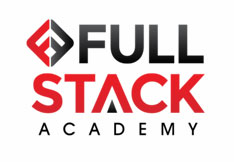
Offerings: Online, Part-time, Full-time
Cost and Fees: $17,910 (Full-time) $15,980 (Part-time)
About the Program: Completion of the boot camp will occur in 17 weeks when attending on a full-time basis. Part-time attendees must go a little longer as that version wraps up in 26 weeks. The full-time program requires 8 hours a day, five days a week. The part-time variety is three hours two nights a week and four hours on Saturday. The design of the Fullstack program is a bit different from other programs as it is geared towards turning beginners into cybersecurity professionals over the course of the boot camp. There is a practice assessment that gauges logical reasoning. Those who fare well in that online free assessment are deemed to have a better chance at success. The program is labeled as beginner-friendly and welcomes students with a limited amount of knowledge in regard to cybersecurity.
Website

Offerings: Online, in-person (Chicago)
Cost and Fees: $10,500 (Online) $12,500 (In-Person)
About the Program: The remote and in-person boot camps both take 16 weeks to complete while the in-person version requires four more hours of classroom instruction per week. There are 12 different modules for the curriculum. There is also a five-week pen testing program that is available completely online for a cost of $3,200. There are also job support services provided to boot camp students, which facilitates the process of acquiring employment upon completion. The program starts out with the basics of cybersecurity and includes real-life examples as it has become one of the top-reviewed boot camps in the nation in terms of student satisfaction. Evolve Academy also has working relationships with many top companies, which allows its graduates to immediately find a place of employment.
Website

Offerings: Online, Full-time
Cost and Fees: $15,500 (Cybersecurity Professional) $12,500 (Ethical Hacker)
About the Program: The University of Miami offers a global learning program with two cybersecurity boot camp options. The professional cybersecurity boot camp is comprised of 370- hours of extensive training. The cybersecurity ethical hacker boot campo is not as long in duration as it requires 210 hours. Both boot camps require the completion of a 30-hour introductory course, which will coast an additional $500. The anticipated time of completion for the Ethical Hacking boot camp is 24 weeks while the professional cybersecurity typically takes 32 weeks to complete. Following the completion of the introductory course, there is an evaluation conducted by the instructor to determine whether the candidate is qualified for either of the boot camps. The intro course is basically a way of familiarizing individuals with the necessary concepts they will need to grasp on their way to completing the boot camp.
Website
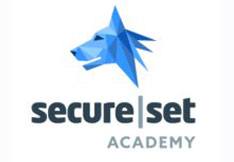
Offerings: Online, Part-time, Full-time
Cost and Fees: $11,950-$19,950
About the Program: There are four options to choose from at SecureSet Academy which is based out of Denver, Colorado. There is a HUNT Cybersecurity Analytics Program that lasts 12 weeks in duration and costs $11,950. There is also a part-time PATH cybersecurity program that costs $15,950 and lasts 36 weeks. The CORE cybersecurity engineering program is 20 weeks in duration and will cost a total of $19,950. A short cybersecurity workshop is also available for $999 and spans six weeks. These programs advertise the fact that they will teach attendees how to hack before the program is completed. However, the prep course is something that equips attendees with the fundamentals needed to successfully complete the program. The boot camp typically combines half theoretical instruction with the other half being hands-on work. Start dates are available on a seasonal basis four times a year.
Website

Offerings: Online, Part-time, Full-time
Cost and Fees: $11,995 (Full-time) $12,495 (Part-time
About the Program: The University of Texas cybersecurity boot camp is available online as students can choose to attend on a full or part-time basis. The boot camps begin on a quarterly basis and last a total of 24 weeks when attending on a full-time basis. The program is designed to arm graduates with the necessary knowledge and skills to pass relevant certifications, such as the CEH exams. Along with admission to the boot camp, the tuition also provides a one -year access pass to CompTIA’s CertMaster Practice online platform. This additional perk, along with the boot camp itself, will allow qualified graduates to gain an immediate position in the cybersecurity sector. Students in this boot camp do not have to be already enrolled at the University of Texas.
Website

Offerings: Online, Full-time
Cost and Fees: $14,300 (Full-time)
About the Program: This program is 36 weeks and is offered completely online. The Florida Vocational Institute of Technology is based in the city of Miramar and its Tech Launch boot camp is open to beginners. The immersive 36-week course is intended to provide graduates with the skills needed to obtain an employment position in IT security or cloud computing. Financial aid options are available for those who qualify as FVI regularly grants assistance. The FVI program continues to grow and expand its resources as it has developed a credible reputation. Applicants must complete basic skills exams but do not need any prior cybersecurity training to be admitted to the boot camp. There is no part-time option as this boot camp is structured to be completed over a nine-month period.
Website

Offerings: Online, Full-time
Cost and Fees: $16,000 (Full-time)
About the Program: This is a 13-week program that awards graduates a pair of certifications and requires 8.5 hours a day of instruction, five days a week. There is no part-time option in this boot camp that offers one-on-one instruction. Lectures comprise one-fifth of the total boot camp hours while the other portion involves hands-on work. To gain admission, applicants have a pair of options. The first is to provide proof of a Network+ Certification or to pass a fundamentals boot camp class that spans one week. That fundamentals class is offered through Cloud Academy, which is based out of San Antonio, Texas. This is considered more of an intermediate level boot camp and may be more difficult for beginners. Financial aid options and military discounts are available to help reduce the cost of tuition.
Website

Offerings: Online, Part-time
Cost and Fees: $13,495 (Part-time)
About the Program: The University of Pennsylvania is one of the most revered higher institutions of learning in the United States. Its cybersecurity boot camp is offered online on a part-time basis and takes 24 weeks to complete. Boot camp sessions begin on a quarterly basis throughout the year. Those interested in applying to this boot camp do not have to be students at the University of Pennsylvania. The reputation of UPenn carries great weight and that boosts the prestige of its boot camp certification. It is not an open admissions process as applicants will have to pass an interview portion to join this program. There is a multi-step process that precedes that actual start of the boot camp.
Website

Offerings: Online, part-time, Full-time
Cost and Fees: $599 (monthly) $2,900 (Upfront)
About the Program: There are two boot camps offered online through Springboard. The first is an introductory boot camp that generally takes three months to finish. There are even special introductory deals that are as little as $299 per month. The unique payment system allows students to save on tuition according to the pace of which they can master the course material. The Cybersecurity Career Track boot camp option typically takes six months to complete and is the more advanced option of the two and typically takes six months to complete. Part of this boot camp involves building an individual portfolio that can be used to obtain employment upon completion. This is one of the more affordable boot camps that allow students to fast track their pace of learning without incurring significant debt in the process. Springboard also provides mentors to help students through the boot camp.
Website
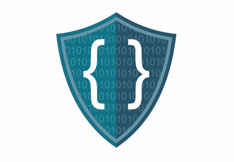
Offerings: Online, In-Person, Part-time
Cost and Fees: $14,500 (Part-time)
About the Program: This boot camp lasts 34 weeks in duration, with classes three days a week. DevLeague is based out of Honolulu, but also offers an online boot camp option. It requires a total of 840 hours of work which is a bit more extensive than other comparable boot camps. The admissions process does not require any prerequisite training or education as it welcomes cybersecurity beginners. However, it suggests that some technical knowledge be carried into the boot camp. There is an onsite cyber prep program that lasts four weeks and prepares students for what they will encounter in the cybersecurity boot camp. Online students can locate similar prep courses if they decide to take this route. DevLeague is considered to be one of the more thorough boot camp experiences and that can provide tremendous value in the search for employment.
Website

Offerings: Online, Full-time
Cost and Fees: $13,495 (Full-time)
About the Program: The University of California Berkeley extension offers a Berkeley cybersecurity boot camp. Two online sessions per week last four hours and 15 minutes each. This creates an intensive workload that covers a wide array of information in a rather short amount of time. There are free information sessions available to prospective students. Berkeley holds an esteemed academic reputation and that is an added benefit of earning a cybersecurity boot camp certificate from this institution. There are also some advanced subject areas as the level of information conveyed in this boot camp is one of its major selling points. The boot camp lasts six months and job placement services are also available for those who complete this program.
Website
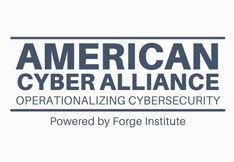
Offerings: Online, Full-time
Cost and Fees: $15,500 (Full-time)
About the Program: The time frame for this boot camp is 14 weeks and coincides with a fall or spring semester of college. It is considered a comprehensive boot camp and is based out of Little Rock, Arkansas. There may be in-person programs throughout the year as the schedule should be checked periodically for new sessions. Completing this boot camp also equates to 23.3 continuing education units. The boot camp is modeled after NICE framework and has a total of 35 days of instruction. The program also qualifies participants for required apprenticeships. There is a deeper level of materials covered in this boot camp which enables it to stand out among many others. The biggest benefit is the depth of course material that is conveyed to participants throughout the boot camp.
Website

Offerings: Online
Cost and Fees: $7,020
About the Program: SANS is one of the premier organizations in cybersecurity and it offers a 401 Security Essentials boot camp via live sessions. These instructor-led boot camps are available in formats that span one, two three or six weeks. Most of the options are in a one-week format. These one-week formats are intensive as they include six 10-hour sessions. To take full advantage of this boot camp, it is recommended that participants complete the 301 Intro to Cybersecurity offered through SANS. However, a firm grasp of the concepts offered in that class is sufficient enough to really benefit from the 401 boot camp. In addition to the boot camp, participants will also receive four months of online access to each of those live sessions. That allows participants to go back and replay each session as often as they prefer within that four-month time frame.
Website
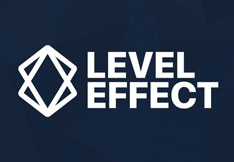
Offerings: Online, Full-time
Cost and Fees: $8,000
About the Program: This cyber defense analyst boot camp lasts 13 weeks and is available during winter, spring and fall sessions. The course schedule includes four 2-hour nightly sessions per week. Completion of this boot camp will give individuals the opportunity to earn a Cyber Defense Certified Professional (CDCP) certificate. The majority of the classes feature learning lands led by instructors. The pace of this program maybe a little too fast for beginners as it challenges participants with critical thinking exercises. Another benefit of this boot camp is the high level of communication provided by instructors, which are deemed to be easily accessible and extremely helpful. It is also affordably priced compared to other similar boot camps that provide similar perks.
Website

Offerings: Online, Full-time
Cost and Fees: $5,500 (Full-time)
About the Program: Becker College provides a 28-week boot camp in which participants can learn at their own pace. One of the top attributes of this boot camp is its affordability. There are online discounts available that drastically reduce the overall cost, particularly when an upfront payment is provided in full. There is also the option to pay monthly installments and that total comes out to $6,900 for the entire boot camp. The boot camp aims to prepare individuals to pass certification exams that are highly acclaimed in the cybersecurity industry. The convenience of the curriculum allows participants to set their own schedules when it comes to the required course materials. The boot camp also provides a pair of weekly one-on-one coaching sessions with a mentor. Financial aid options and various scholarships are available through Becker College as well.
Website

Offerings: Online, Full-time
Cost and Fees: $15,500 (Full-time)
About the Program: This is a comprehensive cybersecurity boot camp that requires a total of 400 hours. There is a mandatory 30-hour intro course that is part of that 400 hours. The boot camp is part of the San Diego State Global campus and includes 12 individual courses. Certification exam preparation is also part of this boot camp as it prepares students to for seven separate certifications. There is a multidisciplinary approach taken in what is defined as an intensive boot camp experience. Students are challenged in this program as it is one of the more demanding ones available. However, that proves beneficial when graduates enter the workforce as it puts them in a good position to thrive.
Website

Offerings: Online
Cost and Fees: $19,500 (Full-time)
About the Program: The cybersecurity boot camp offered through Cyber Warrior is an 18-week online program that can be described as very intensive. Every week introduces a new concept tor certification area. The boot camp features 720 hours of instruction and a great deal of hands-on learning. The boot camp is described as an engagement model that has live online classes. Students will be required to take quizzes while also participate in guided labs. There are 40 hours of instruction per week. Cyber Warrior also partners with businesses to provide an apprenticeship program for qualified candidates following the completion of the cybersecurity boot camp. Each live session builds off the previous one so continued attendance is critical for getting the most out of this boot camp.
Website
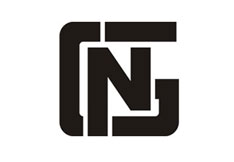
Offerings: Online, Full-time, Part-time
Cost and Fees: $12,500
About the Program: This 22-week course covers 400 hours of instruction. Those who enroll in this boot camp will be assigned a mentor to help navigate through the course material. The goal of this boot camp is to help participants land jobs once it is completed. This is accomplished with the help of a career services team. The availability of this team will extend beyond the completion of the boot camp as well. There are both full-time and part-time options available as NextGenT aims to meet the scheduling needs of all students. There is a basic training course that prepares students for the boot camp, although it is not mandatory. The level of training is considered advanced as NextGenT advertises its services as military-grade training in cybersecurity.
Website

Offerings: Online, Part-time
Cost and Fees: $10,000 (Part-time)
About the Program: This 24-week boot camp will provide participants with a credential from one of the premier technological universities in the southeastern United States. This program is part of Georgia Tech’s professional education division which means that those who register do not have to be Georgia Tech students. There is no need to worry about the typical university enrollment process. A convenient weekly class schedule includes two weekday classes, along with a Saturday class. This boot camp is ideal for individuals who already possess a fair amount of technical knowledge when it comes to information security. There is also a high rate of job placement for individuals who complete this type of program through Georgia Tech.
Website

Offerings: Online, Part-time
Cost and Fees: $12,495 (Part-time)
About the Program: Established in 1826, CWR has a long-standing tradition in higher education. This virtual cybersecurity boot camp is available strictly on a part-time basis. The boot camp takes 24 weeks to complete and features a weekly schedule that includes two 3-hour weekday classes along with a 4-hour class on Saturday. No prior training is needed, although CWR does provide pre-course material that allows students to familiarize themselves with the course material. Upon completing an application, a CRW representative will conduct a phone interview before granting admission. Student career development services are also offered to those enrolled in the boot camp. The program includes 10 hours of instruction per week, although CRW suggests that students devote another 20 hours a week to the course work.
What to do after attending a cybersecurity boot camp?
Once you have completed a cybersecurity boot camp, the process of finding a job can begin. A portfolio is typically put together during the boot camp and that can be used during a job interview. Job placement services can also help as many boot camps assist participants in finding work once a boot camp has finished. The skills learned in a boot camp are in demand, which helps in the process of finding employment. Those who invest their time and effort into a boot camp are generally ready to succeed in the cybersecurity field.
Cybersecurity boot camps also open up the potential for individuals to attain a variety of jobs. There is an industry need in a number of areas and the diversity of concepts instilled during a boot camp allows individuals to branch out in an array of roles.
Cybersecurity analyst
Systems Administrator
IT Security analyst
Risk analyst
Systems engineer
Penetration Tester